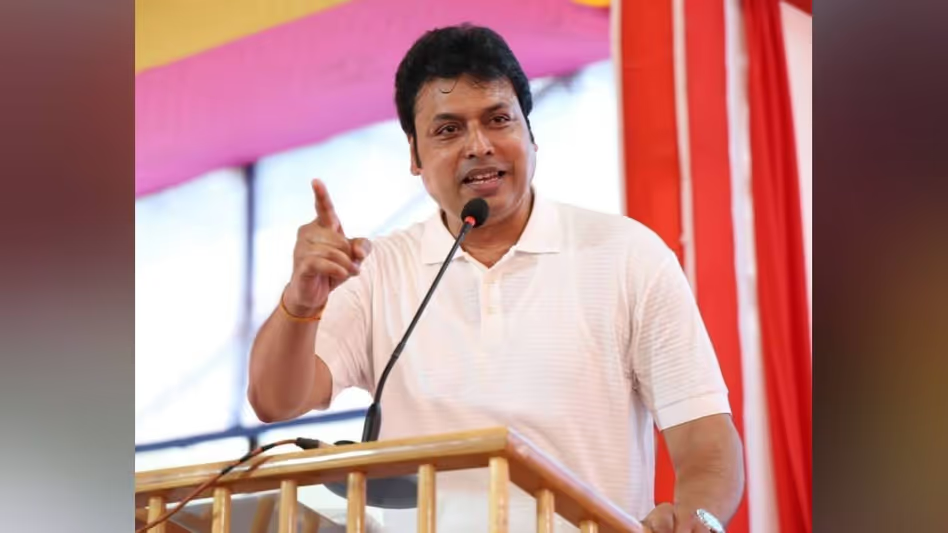BJP MP and former Tripura Chief Minister Biplab Kumar Deb sparked fresh political conversations on April 7, 2025, with a candid comment that stirred both criticism and curiosity. Reacting to the appointment of veteran CPI(M) leader M.A. Baby as the new General Secretary of the Communist Party of India (Marxist), Deb admitted he had to “Google him” to know who he was. His statement not only triggered sharp reactions from the Left but also reignited debates on what truly defines political leadership in India.
Biplab Deb expressed his views during a press interaction in Agartala. He acknowledged that while M.A. Baby possessed strong academic credentials and had served in several political roles over the decades, he lacked national visibility. “I had to Google him. That itself says something,” Deb remarked with a tone of surprise. He suggested that in the age of information and rapid political communication, public recognition matters as much—if not more—than ideological loyalty or experience.
Deb’s comments struck a nerve with CPI(M) supporters and leaders. Many saw the statement as disrespectful, especially considering M.A. Baby’s long political journey. Baby has held several important positions within the party and also served as the Minister for Education and Culture in Kerala. He is known in Left circles for his intellectual depth and unwavering commitment to Marxist ideology. Still, his visibility has largely remained regional, primarily within Kerala and CPI(M) party structures.
Biplab Deb used this moment to critique the broader approach of the Left parties, suggesting that they have failed to connect with the masses in a meaningful way. “This is not just about a name or face; this is about relevance. People should know who is leading a national party. If you’re choosing someone whom even a sitting MP has to look up online, it says a lot about your connection with the people,” Deb stated. He emphasized that leadership should inspire public recognition and engagement, not remain buried in party handbooks.
His remarks came shortly after the CPI(M) Central Committee unanimously elected M.A. Baby to the top post following the retirement of Sitaram Yechury. Baby’s elevation marked a shift in CPI(M)’s leadership, with many in the party viewing him as a balanced figure who could bridge ideological purity with modern political needs. However, Deb’s response underlined the challenge such leaders face when trying to break through India’s crowded political landscape.
Deb didn’t stop at criticizing the lack of recognition. He also questioned the party’s ability to reinvent itself in the current political climate. According to him, CPI(M)’s insistence on ideological orthodoxy over mass appeal continues to isolate it from the youth and the digital-savvy generation. He argued that merely having a clean image and sound academic background doesn’t make a leader successful if he or she cannot resonate with the broader public.
Interestingly, Deb’s choice to go public with his unfamiliarity with Baby highlights a deeper reality about Indian politics. Many regional leaders who hold significant influence within their states often remain obscure figures at the national level unless they step into limelight through national debates or controversies. M.A. Baby’s calm, studious demeanor and his focus on ideological matters have perhaps kept him away from the media spectacle that often defines contemporary politics.
CPI(M), meanwhile, has remained tight-lipped on Deb’s remarks, choosing not to escalate the issue. However, Left sympathizers on social media took strong objection. Many pointed out that knowledge about a political figure should not be limited to media visibility. They argued that the ability to govern and strategize must matter more than digital or televised fame.
Deb, however, stood by his views. He reiterated that his criticism wasn’t personal but rather a reflection of the disconnect between certain political ideologies and the common public. “This is not about mocking anyone. This is about being grounded in the real world, where a leader must be known and followed,” he concluded.
His remarks left a mark on the day’s political narrative, once again exposing the divide between political legacy and present-day popularity.

